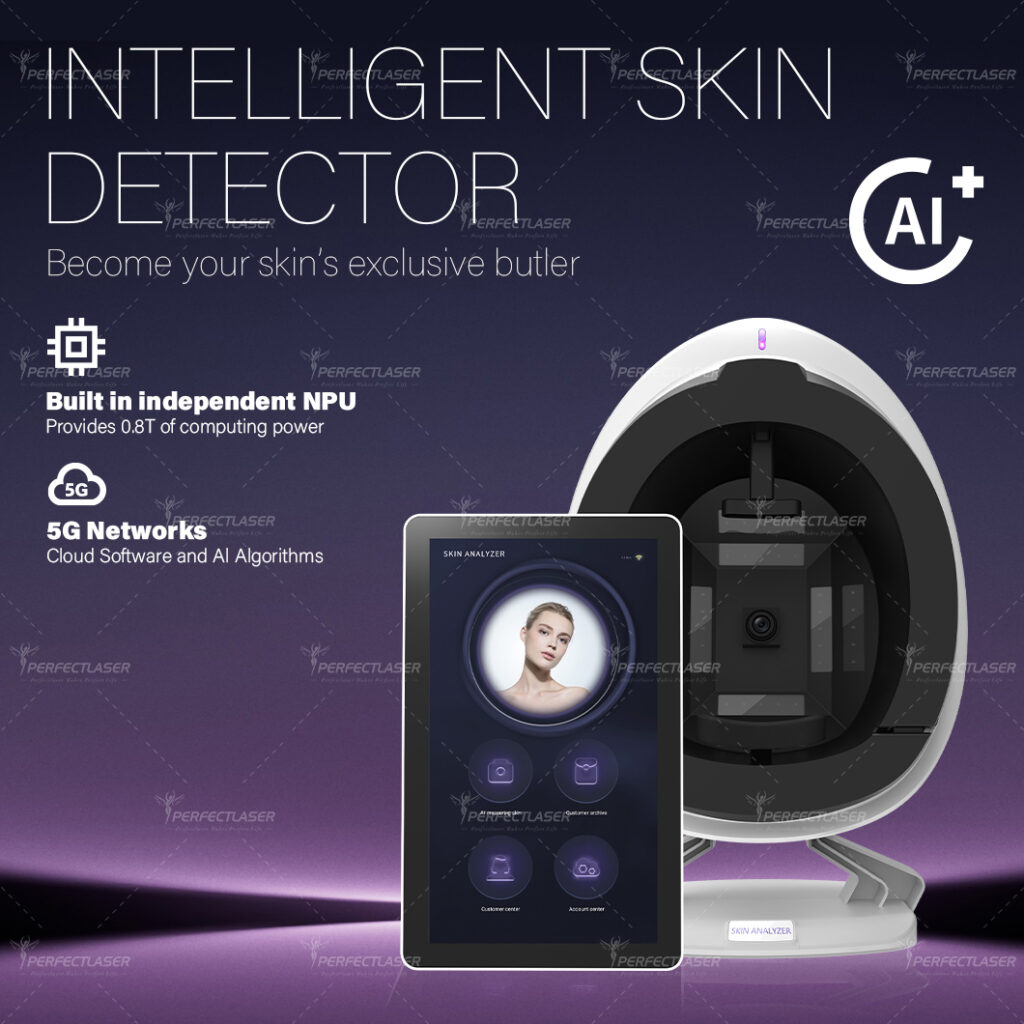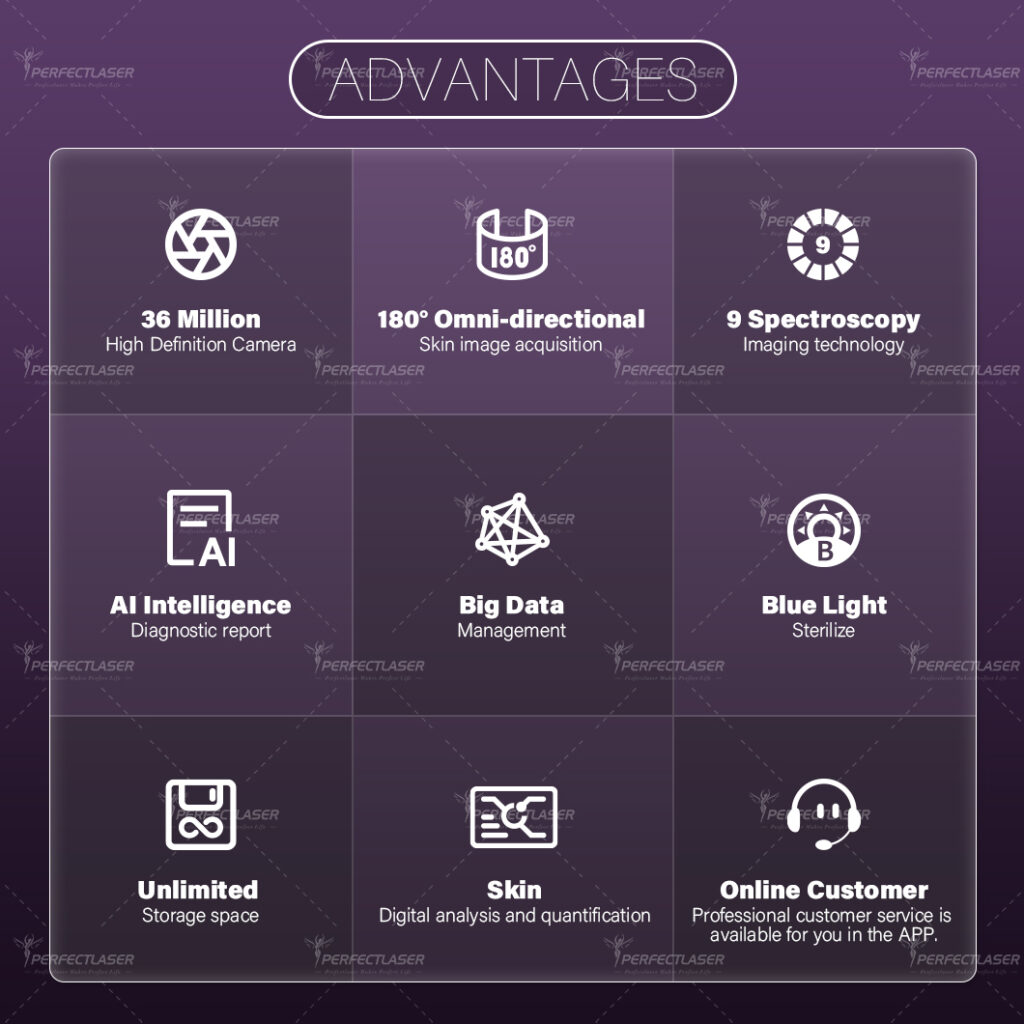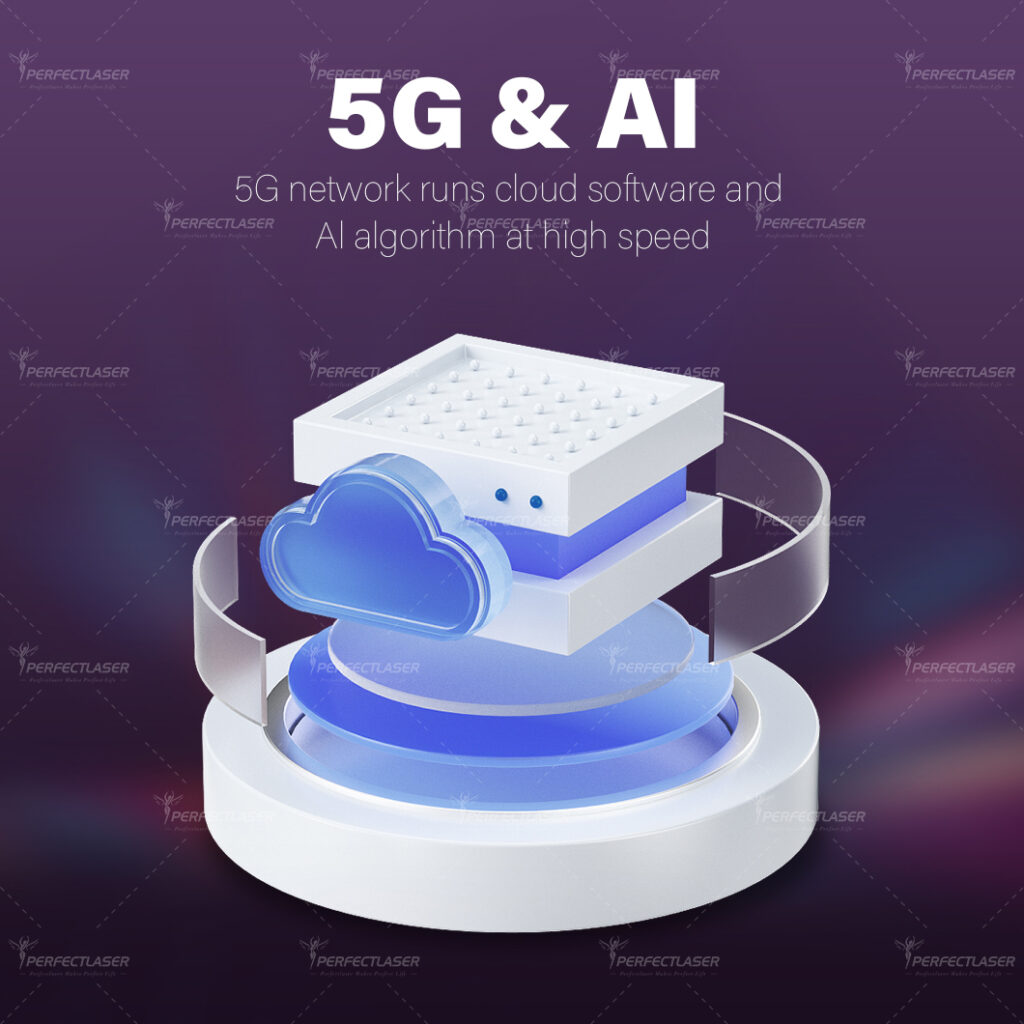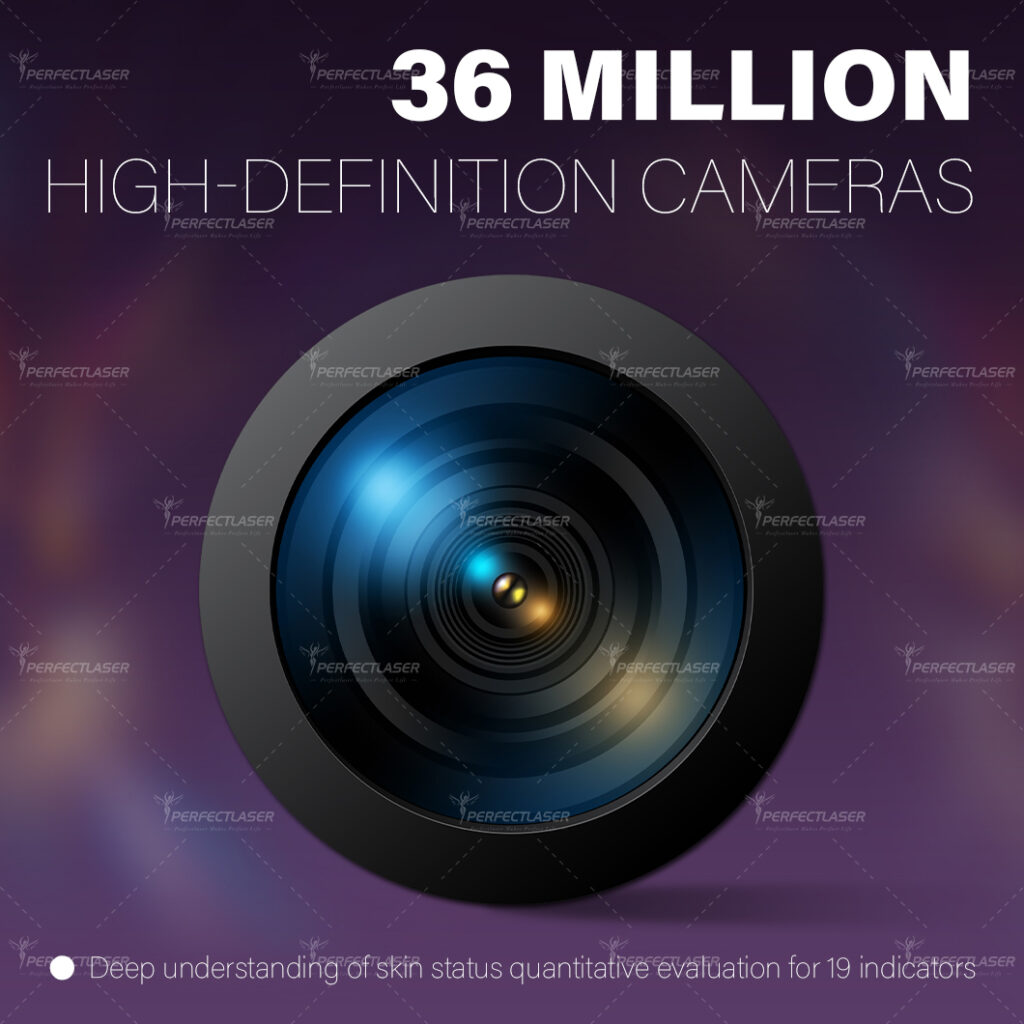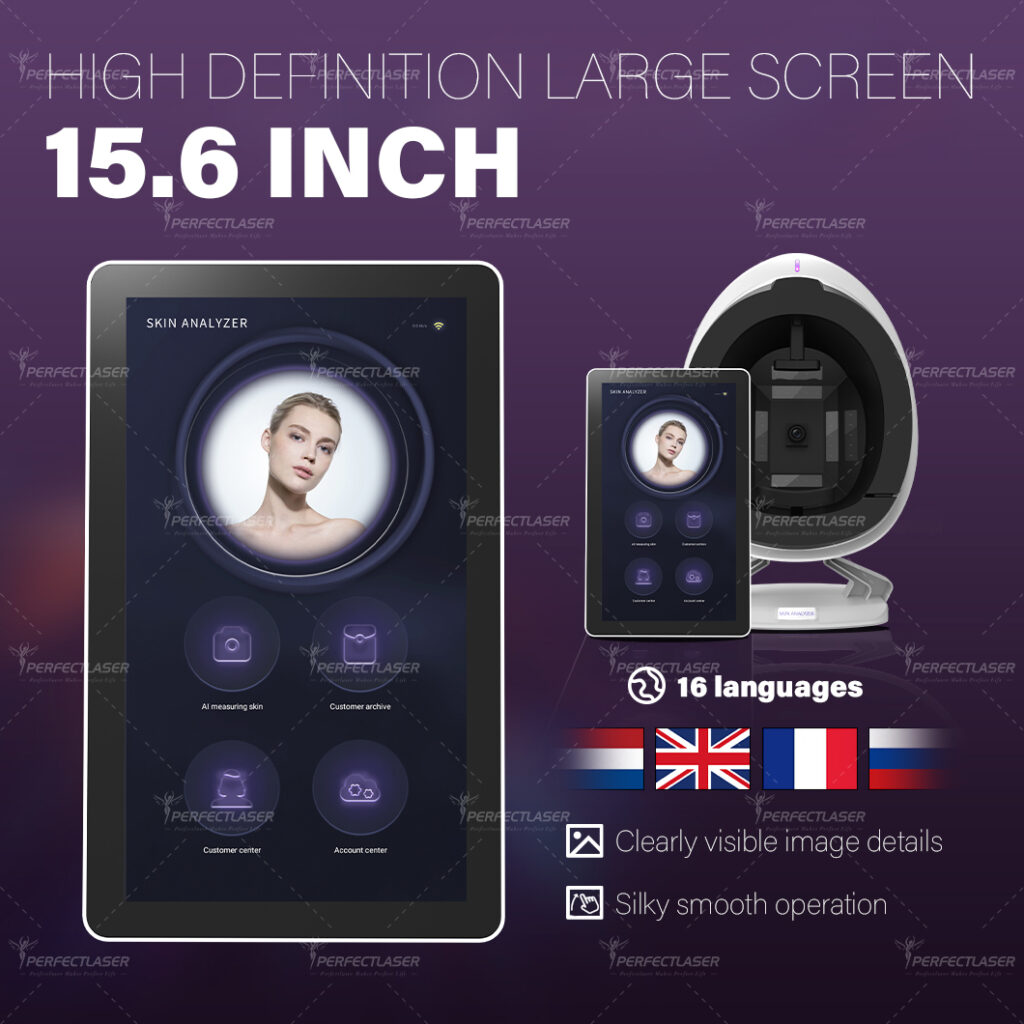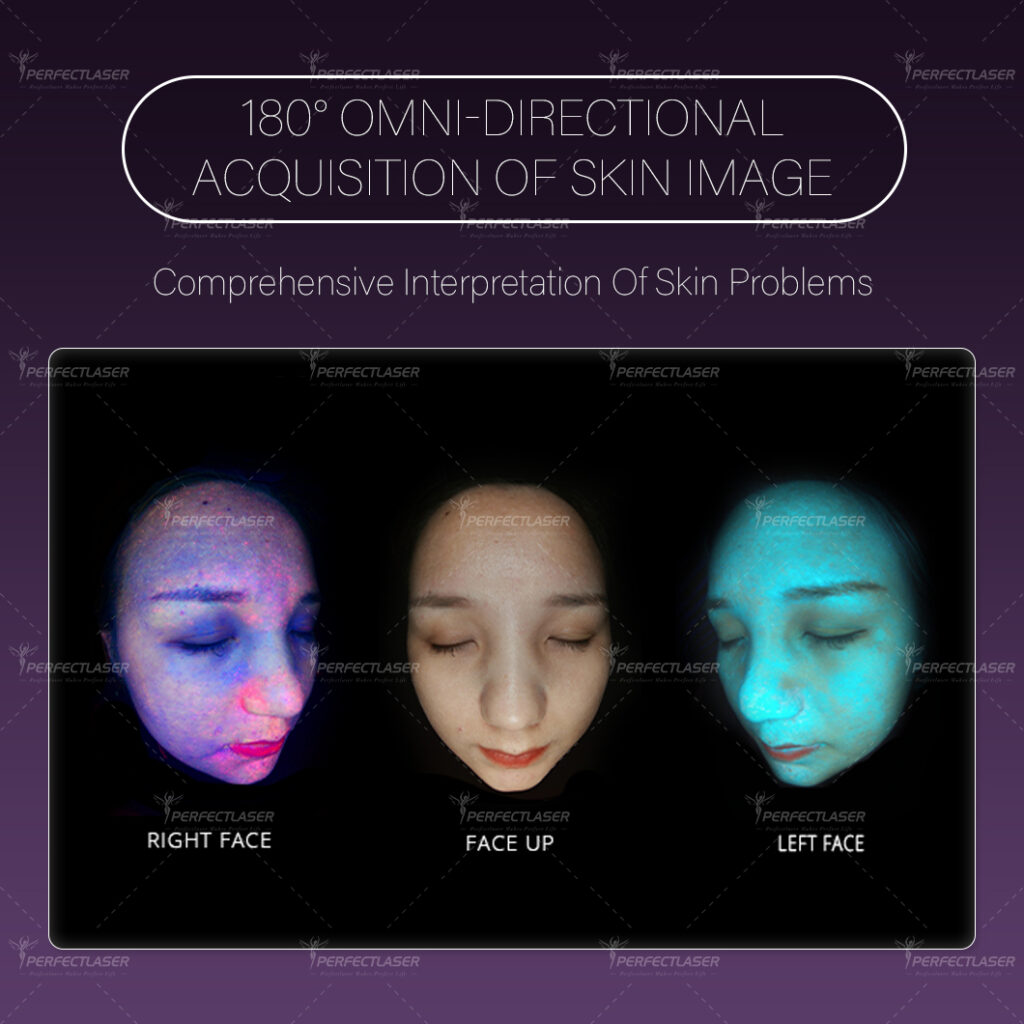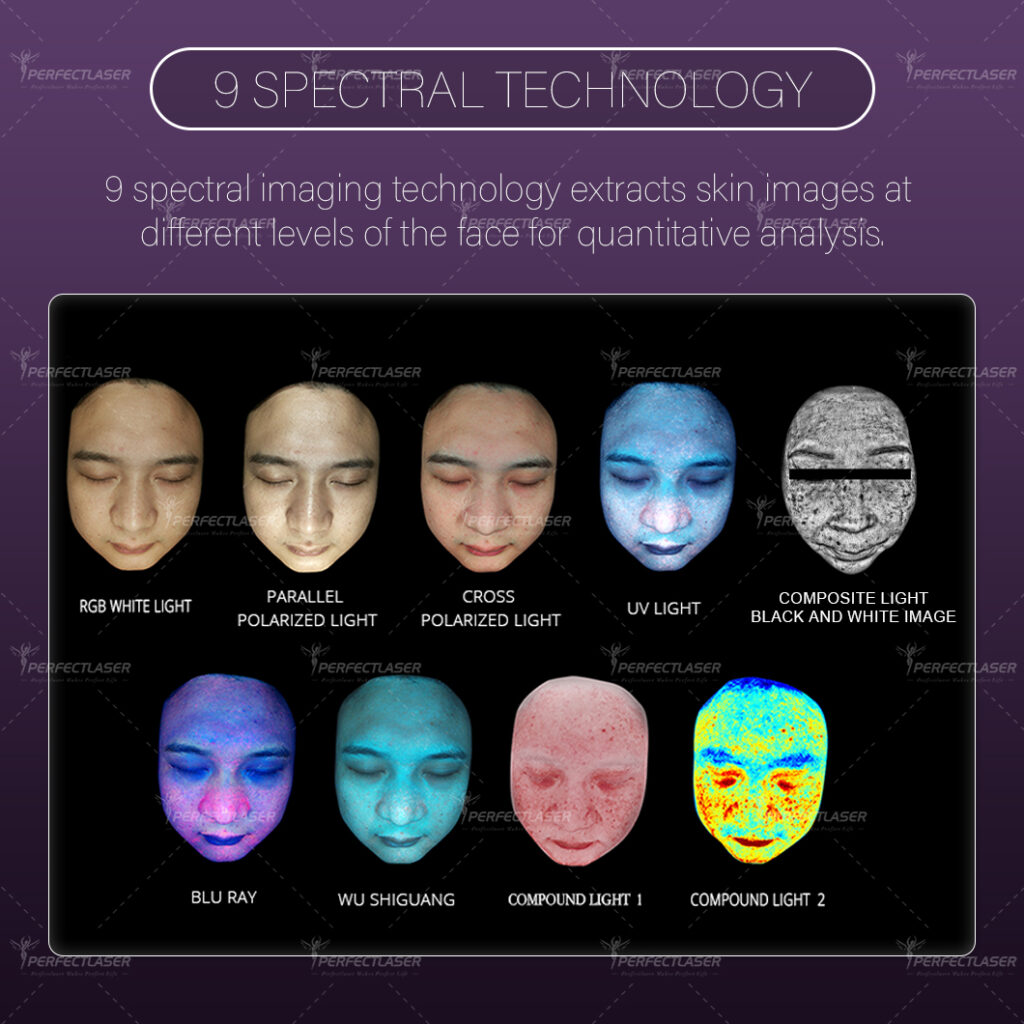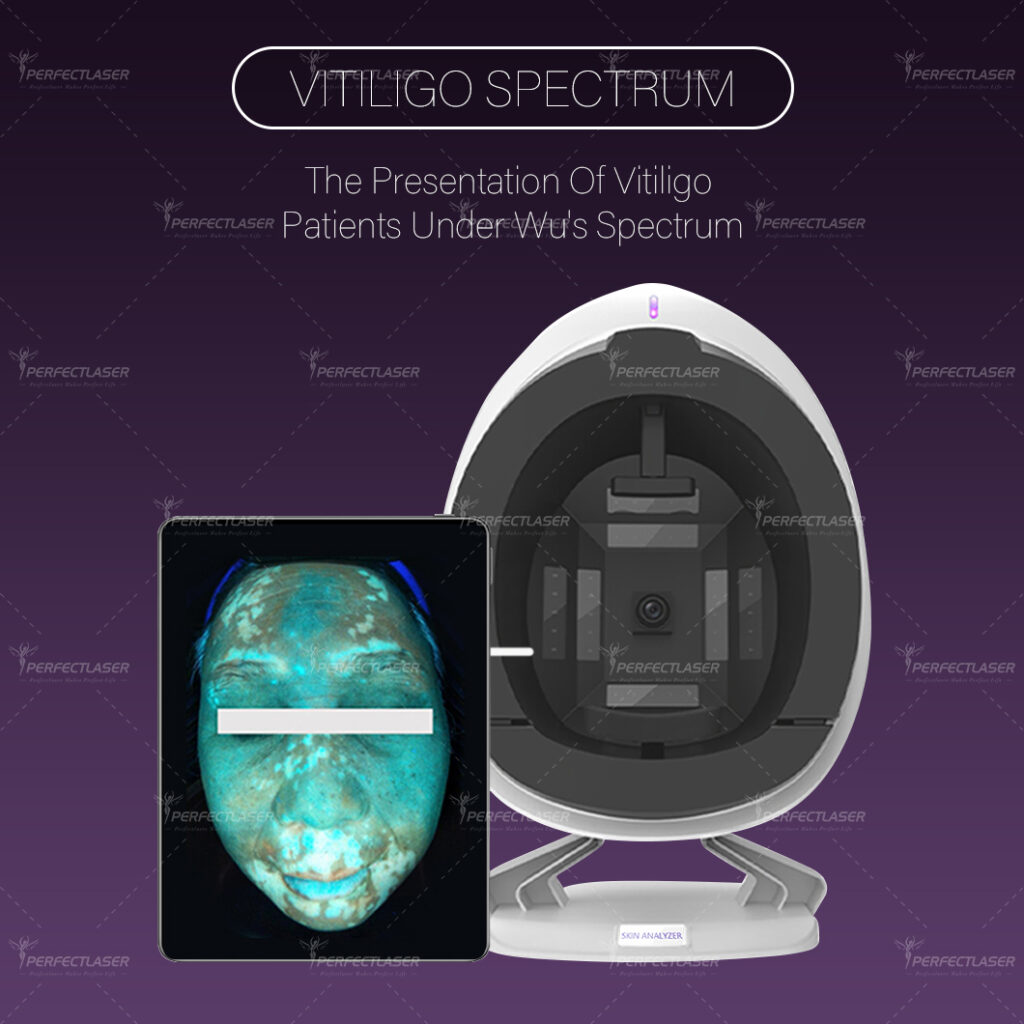Menu
| STATIC PIXELS | 36 million pixels (1920*1080) |
| LIGHT MODE | Nine spectrum +RBX-technology processing |
| SYSTEM | Android 11 |
| RATED VOLTAGE | 100V-240V |
| RATED CURRENT | O.5A |
| RATED POWER | 30W |
| DISPLAY SCREEN | 15.6 inches |
| STATIC PIXELS | 36 million pixels (1920*1080) |
| LIGHT MODE | Nine spectrum +RBX-technology processing |
| SYSTEM | Android 11 |
| RATED VOLTAGE | 100V-240V |
| RATED CURRENT | O.5A |
| RATED POWER | 30W |
| DISPLAY SCREEN | 15.6 inches |
Skin analyzer machines are devices used in dermatology and cosmetics to assess various aspects of the skin’s condition. These machines work based on several principles, often involving a combination of technologies to provide a comprehensive analysis. Here is a general overview of the working principles of skin analyzer machines:
Visible Light Analysis: Skin analyzers often use visible light to illuminate the skin’s surface. The reflected light is then captured and analyzed to assess skin tone, texture, and pigmentation levels.
UV Light Analysis: Some skin analyzers incorporate UV light to detect underlying skin issues not visible to the naked eye, such as sun damage, pigmentation irregularities, and signs of aging.
Polarized Light Analysis: Polarized light can help evaluate skin hydration levels, oiliness, and the presence of fine lines and wrinkles by analyzing how light interacts with the skin’s surface.
Digital Imaging: High-resolution cameras integrated into skin analyzers capture images of the skin at different wavelengths. These images can reveal details such as pore size, blemishes, and overall skin health.
Analysis Software: Skin analyzer machines often come with software that processes the captured data and images. This software can provide detailed reports, recommendations, and comparisons over time to track changes in the skin.
Moisture and Oil Content Measurement: Some devices include sensors to measure the moisture and oil content of the skin. This information is crucial for assessing skin hydration levels and determining suitable skincare products.
Multi-Spectral Imaging: Advanced skin analyzers use multi-spectral imaging to capture images at different depths within the skin. This technology can help identify issues like hyperpigmentation, vascular conditions, and collagen levels.
Data Interpretation: The data collected by the skin analyzer is interpreted based on predefined parameters and algorithms. This analysis can help in diagnosing skin conditions, recommending treatments, and tracking the effectiveness of skincare regimens.
Overall, skin analyzer machines work by combining various technologies to provide a detailed assessment of the skin’s condition. By analyzing multiple skin parameters, these devices can help individuals and skincare professionals make informed decisions regarding skincare routines and treatments.
